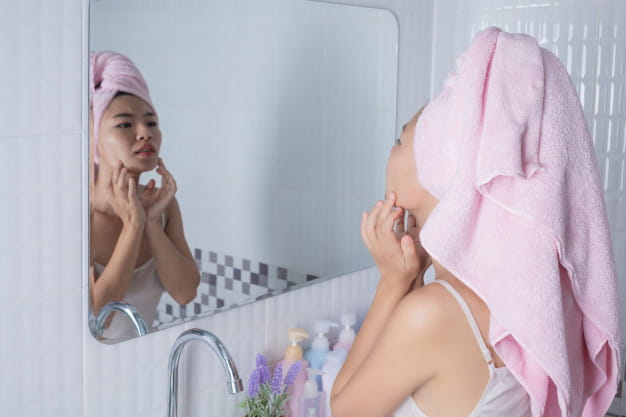Skin changes with age. It becomes thinner, loses fat and does not look as plump and smooth as it used to. Women face the most skin-related problems as they age. In fact, scratches, cuts or bumps take longer to heal as they age. Dermatologist and aesthetic physician Dr Ajay Rana tells us in detail about skin problems.
Sun tanning or staying out in sunlight for a long time can cause wrinkles, dryness, age spots.
Many older women suffer from dry patches on their skin, especially on their lower legs, elbows and lower arms.
Patches of dry skin feel rough…
Dry skin can be caused by a number of serious health problems, such as diabetes or kidney disease. Using too much soap, antiperspirant or perfume and bathing in hot water can worsen dry skin. The symptoms of skin disorders vary greatly. They can be temporary or permanent and painless or painful.
Injuries
Older people get injured more easily than younger people. These injuries take longer to heal. Actually, with age, the immunity system of women becomes very weak, due to which these wounds take a long time to heal. Some medicines or diseases can also cause injuries, which are more serious.
Liver Spots
As women age, they often develop spots called liver spots. These are brown spots that often occur due to prolonged exposure to the sun. They usually appear on areas such as the face, arms, back and legs. To reduce these spots, women can use a broad-spectrum sunscreen, which helps protect against both types of sun rays (UVA and UVB) and also helps reduce age-related spots.
Can be easily stopped.
Wrinkles
Over time, skin begins to wrinkle. The sun's UV rays can make skin less elastic. As women age, their skin experiences many changes, especially wrinkles. These are caused by thinning of the epidermis and dermis, breakdown of collagen and elastic fibers, and decreased cell healing and DNA repair.
With age, women's skin starts to lose melanocytes and with the reduction in sebaceous glands, the supporting structures of the skin also start to decrease.
Aging is associated with structural and functional changes in the skin, which make it more susceptible to skin disease. Xerosis is the most common problem in aged skin. Older patients are also at risk of skin infections and have increased skin deterioration, which is why wrinkles are more common in women.
infection
Women are also at risk of developing a variety of skin infections as they age. Common skin infections include candidiasis, dermatophytosis, bacterial and viral infections. Tests for these fungal infections should include direct microscopy (with potassium hydroxide) and samples for mycology (skin scrapings, hair shafts, nail scrapings). All these tests can help women get relief from all types of skin infections.
Xerosis/Asteatotic Eczema
With age, the skin becomes dry and starts flaking easily, as the amount of oil in the skin starts decreasing with age. It is itchy, dry skin has a rough and fine flaky or scaly surface. Sometimes areas of dry skin have asteatotic eczema. These appear as round red patches when the body's immune system starts weakening. Brown spots, which look like freckles, are often seen on women's skin. These are larger and more irregular than freckles. They are called senile freckles. They are often caused by damage to the skin due to sunlight. If the freckles become larger or thicker or develop a crust.
side effects of medicines
As we age, our bodies are exposed to a variety of drugs and medications. Because women are physically weaker than men, they are less likely to develop adverse reactions to drugs. Common adverse reactions to drugs are seen in their skin, where it can lead to redness, itching or blistering. It is important to recognize such itching or blistering early so that the offending drug can be stopped, thus preventing the side effects of the drug.
It can be prevented from becoming serious. So that it does not have any adverse effect on the skin of women.
Some useful tips to reduce skin problems in women due to aging…
● Women should regularly use moisturizer on their skin. Moisturizer softens dry skin cells.
● Don't forget to apply sunscreen before going out.
● Use vitamin E regularly. Vitamin E also helps you stay safe from sunburn.
● Healthy eating habits and lots of water improve the quality of your skin.
● Use moisturizer and hydrocortisone cream in case of skin rashes, eczema, dryness and itching
Use the.
● Always use night cream with Glycolic Acid o.
– Usha Gupta






